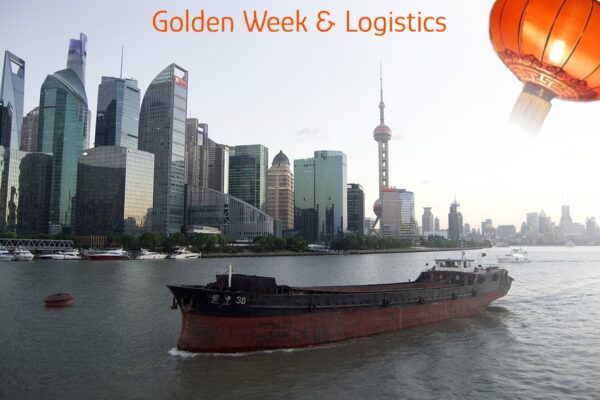Clients who rely on trading with China have had to navigate some rough seas lately. Despite trade restrictions on selected products, 35 to 40% of Australian exports go to China, and 20% of imports come from there. As China approaches its Mid-Autumn festival this month and the week-long Golden Week celebrations in October, renewed lockdowns are causing concern.
From time to time we bring you updates on the trade and shipping situation with China, and right now there is a convergence of factors influencing their import and export activities with Australia.
China’s National Day is celebrated annually on 01 October to commemorate the founding of the People’s Republic of China. Immediately following it there is a seven-day celebration called the Golden Week festival. In 2022, the holiday dates are 01 to 07 October.
Concentration on security and regional influence has distracted us from our economic relationship with China, a key foundation of Australian prosperity. According to DFAT (our Department of Trade), “China is Australia’s largest two-way trading partner in goods and services, accounting for nearly one third (31 per cent) of our trade with the world.”
We have written in the past about the effects of lockdowns in China and it is with some concern then that we note China’s southern city of Shenzhen has shut down the world’s largest electronics market this week. Public transport nearby has been suspended, as authorities enforce neighbourhood-wide lockdowns in response to just a small number of COVID-19 cases.
Huaqiangbei, a busy shopping area home to thousands of stalls selling computer components, mobile phone parts and microchips, is among three neighbourhoods placed under a mandatory four-day lockdown in Futian district on Monday, according to the district government.
Residents in those neighbourhoods are forbidden to leave their homes except for COVID-19 testing, which they are required to undergo daily until Thursday. All businesses in the affected areas are shut down through Thursday, except for supermarkets, pharmacies and hospitals. Restaurant dining is also suspended, with only takeaway allowed.
As we approach 01 October, Chinese exporters are rushing to finish production and make pre-Golden Week sailings. This will further constrain shipping freight space (which is already very tight during peak season) and may drive up prices for both ocean freight and airfreight even further, with carriers being more overbooked than usual.
We will also see blank sailings immediately after Golden Week — because factories will be closed during the holiday. Blank sailing is a term used when a shipping line decides to skip a particular port or an entire voyage of a scheduled sailing route. Carriers will announce these blank sailings in order to optimize vessel utilization.
French container line CMA CGM (the third largest in the world), for example, has announced it will blank five sailings in the period surrounding China’s Golden Week, removing close to 100,000 TEU from its Asian trade.
There has been some attention focused recently on the direction China’s economy is headed. China’s factory activity contracted for the first time in three months in August amid weakening demand, while power shortages and fresh coronavirus flare-ups disrupted production, a private sector survey showed last Thursday. China enjoyed a record $101bn trade surplus in July, but cargo shipment volumes could soon decline, due to cooling demand and no ‘peak season’ for some trade routes.
Freight forwarders are still reporting pockets of delays and congestion at Chinese ports, partly due to the ongoing Covid restrictions. Delays at Shenzhen, for example, were becoming more serious, and additional costs have ‘become normal’ due to the unstable epidemic situation. Vessel delays of seven to ten days have been reported at Shanghai, where Covid policies are constantly changing, which has had a major impact on haulage operations.
New figures just released by the Department of Trade show that – in spite of the unofficial bans placed on Australian products – not only have our exporters managed to find new alternative markets, but business with China has actually picked up. Trade Minister Don Farrell has noted that China remains our largest trading partner and says he wants to see trade blockages affecting Australian exports removed so that trade, which has benefited both our countries, can continue unimpeded.
For more information about international shipping and trade, whether with China or elsewhere, contact us here at Colless Young. As licensed Customs Brokers and International Freight Forwarders we offer correct, professional advice on all your import and export consignments. We are based in Brisbane and provide a complete range of logistics services for airfreight and sea cargo at all Australian ports and airports.

